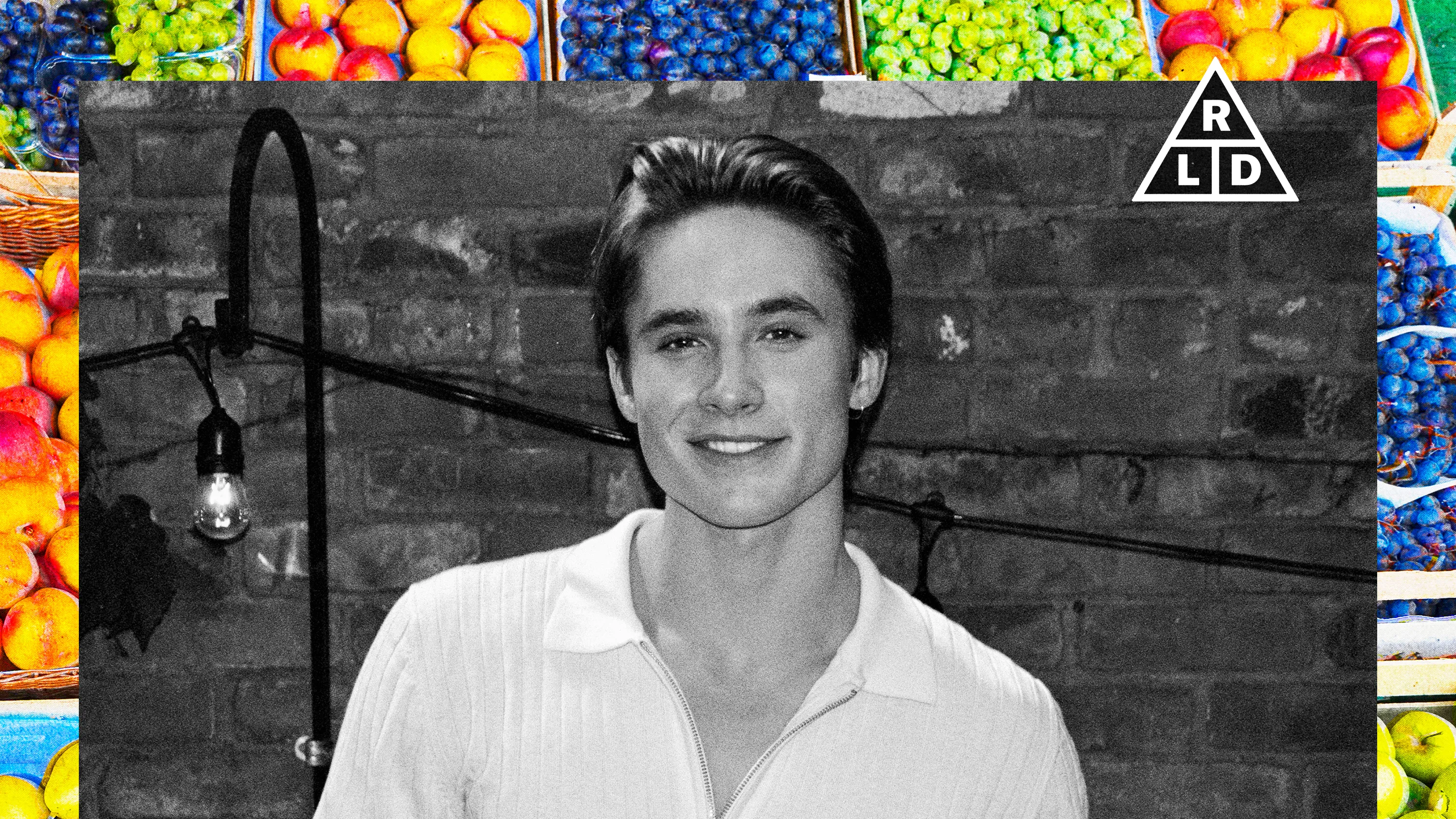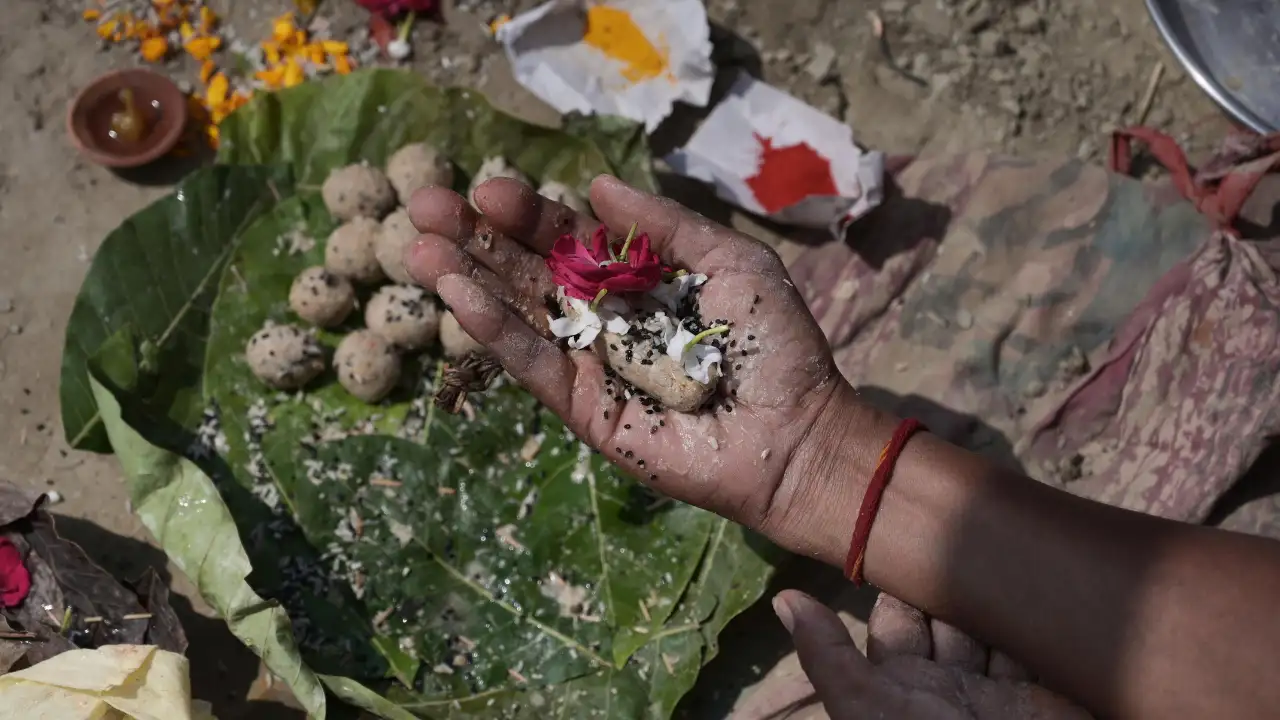By Nick Remsen
Copyright gq

Ollie Muhl, 21, did not set out to be a content creator. His ambitions, from childhood until about the age of 17, were sportier: He wanted to play elite tennis, perhaps in college and maybe even as a professional. As a teenager, Muhl moved from his hometown of Colorado Springs to Irvine, California, to attend a tennis training academy. But the pandemic threw a wrench in his plans.
In witnessing the influencer boom of the COVID era, Muhl decided to pivot into the space. His formula might be described as following an unserious shtick while winking at a life of serious charm, replete with the good looks and muscled physique that so often go hand-in-hand with algorithmic male visibility. (Muhl says his fitness regimen is weight-based, from Bulgarian split squats to steady ab workouts). He’s not so much living the TikTok verité of say, Sway House, yet his content is still day-in-the-life-esque–just with a tighter edit that blends self-deprecating awareness and animated-but-controlled silliness. See him, in one case, attending a Thom Browne event (while dressed by the brand), only to break an office chair set piece while filming. Or him goofily interviewing the tennis player Carlos Alcaraz about the tennis star’s favorite type of animal (“This is a deep question,” Alcaraz replies, playing along).
He strikes a heartwarming chord too: The content that really propelled him into super-creator status was a video in which he surprised his grandmother, a former model, with a full-production photo shoot in Paris. It went ultra-viral, and the clip has dozens and dozens of millions of views. Muhl himself now has around 7 million followers across his platforms, and says, of that springboard moment: “All it takes is one video to shift everything again.”
He is cognizant of one age-old truth, though: “Sex sells,” he says while sitting in the sun-speckled garden of the Standard East Village last week. In Muhl’s case, that’s more of a suggestion than anything explicit, but on his channels, a shirtless post goes a long way. He knows full well it’s part of his appeal–which is, in essence, the job.
We chatted with Muhl about his fitness roses and thorns, his one-time Panda Express fixation, and the discipline it takes to stay in the online spotlight (it’s harder than it looks).
This interview has been edited and condensed for clarity.
GQ: You’re in town for the US Open, and we know you took tennis very seriously when you were a bit younger. Let’s start with that–does all that training still inform how you upkeep your physical health, today?
Ollie Muhl: From those days, I’ve carried so much with me. I think overall, it’s just the mindset that tennis implements–it requires a pretty high discipline that’s both physical and emotional. It’s an intense sport and you need to stay…emotionally mannered, I’d say. In kind of high-pressure situations now, I find myself being a lot better at handling them and thinking rationally. And physically, I’m doing something active every day. I think the sport gave me this focus; to be active on a consistent basis, and to stay level-headed. Discipline is the key across both.
Does that translate to the stamina needed to be, and to remain, so visible on social media?
I think so, yeah. For sure. With a career on social media, a big part of it is discipline and showing up every day on a consistent basis, regardless of whether you want to or not.
I think the creators who really have success are the ones who are able to go for long, consistent stretches of time without taking much of it off. I’ve found that’s been one of my advantages over other creators and people in the industry: I’m going to show up regardless of how I feel, and I’m always going to make a video and I’m always going to make it work. Maybe it’s not going to be the best that day, but at least I’m there and I’m trying.
Tell us about your fitness routine. What do your workouts look like? You’re clearly in good shape.
I’m definitely more into weights. I think when I work out, I am trying to optimize for social media. Everything I do, I treat it almost like I’m an athlete—but for social media. So if I’m working out, it’s mainly for aesthetics, so I can look as good as possible and present myself in a way that captures the audience a bit better. That’s the main goal. And of course I get the benefits of working out—I feel good physically and mentally. But the overarching thing is optimizing for social media. If I were still playing tennis, I’d be doing more cardio-based workouts to optimize for that. I think I try to tailor everything toward having an advantage in what I am doing.
That’s very candid. The answer to this next question is probably obvious, but it ties in: When you post your physique–à la shirtless pics–does this kind of material perform better?
A hundred percent. On the internet, sex always sells. That definitely benefits me. I know it’s an advantage, but I’d like to hope it can also serve as inspiration for others who want to get their fitness in check.
What about your diet? Are you pretty disciplined there too?
Generally, I’m very protein-heavy. I eat protein with every meal and stick to non-processed foods as much as I can. Traveling makes it hard, but I’ll usually go for rice, veggies, and meat. I try to keep it clean and minimally processed. At home, it’s all organic groceries, anything clean I can get my hands on.
Do you have a favorite meal?
That’s tough. I have a lot. I love Indian food, I love Korean barbecue, and I love dim sum. But if I had to pick one dish? Orange chicken with white rice. It’s not exactly healthy, but I grew up loving Panda Express. When I first moved to my tennis academy, I’d go to Panda Express three times a week until I realized it was wrecking me on court. It was my vice!
I, too, loved (still love) Panda Express. What about sugar–do you have a sweet tooth?
I don’t think so. I typically pretty easily say no to sweets, though if I’m at events and there’s food and this and that, I’ll sometimes kind of go crazy.
You’re 21; do you drink alcohol?
No! I’ve never had a drink. There’s been alcoholism in my family, and from a young age I just felt it wasn’t for me. It doesn’t align with my long-term goals. Sure, it can be fun in the moment, but I get fulfillment from striving toward bigger things.
With such a big audience, how do you manage the pressure–and, in turn, your mental health?
For the most part, it’s a blessing and it’s amazing, but it can be tough. I think people think that social media, and having a following, is easy, but there are days when I wake up and don’t want to film, don’t want to be funny, and don’t want to look good. I do sometimes feel pressure from my audience, and from people around me, to perform constantly. That can be overwhelming. Over time, I’ve gotten better at managing it, telling myself it’s okay not to be “on” all the time. Having creator friends helps too. People who understand what this is like.
Are there specific triggers about it that get you down, and that you try to avoid as such?
Honestly, usually it’s social comparison. I’ll look at what others in my niche are doing to see how I can improve, but sometimes it can be one of the things that drops me down. I have to remind myself: I’m showing up every day, trying my best. That’s all I can control. The days I put in 100 percent, regardless of likes or follower gains, are the days I feel most fulfilled. The times that I really get the most upset with are when I’m not actually trying as hard as I could be. So, yeah. I focus on that, and it helps.
Going off of that: Do you ever feel imposter syndrome?
For sure, especially when I started this at age 17 or 18. I didn’t have a lot of security or self-confidence. I’ll always, and I think anyone will always, find themselves in a room with bigger fish and people who’ve accomplished more. In the back of my mind, I’ll be like, Do I really deserve to be here? But I use it as motivation. I heard this quote along the lines of: “To build self-confidence, you have to make a stack of undeniable proof that you are the person you say you are in the mirror, until it’s impossible for you to deny that.” I’ve found that the more hard work and achievement that I stack in that mirror, the easier it is for me to feel secure in my own skin. I think the more I work at it, the more I grow up too.
Do you still find that people roll their eyes at social media as a career?
All the time. It’s still such a new industry. Some people think it’ll go away, but at this point it’s undeniable—it’s running the world. Unless AI takes my job. But even if social media disappeared, I’ve learned so much from it that I think I’m going to be able to branch out to something else.
Final question: What’s your least favorite workout?
Bulgarian split squats. Oh man, they’re brutal. And cardio, of course. Cardio is my nightmare. It’s never been my strength, even back when I played tennis. I could hit forever, but running sprints was always my least favorite. Now, I think there’s something appealing about it. Because I feel if I can conquer it and get good at it and force myself to achieve better results in cardio, I think it’ll help me kind of open the door to other hard achievements. The fact that I dislike it is exactly why I want to get good at it.
In Real-Life Diet, athletes, celebrities, and other high performers talk about their diet, exercise routines, and pursuit of wellness. Keep in mind that what works for them might not necessarily be healthy for you.



